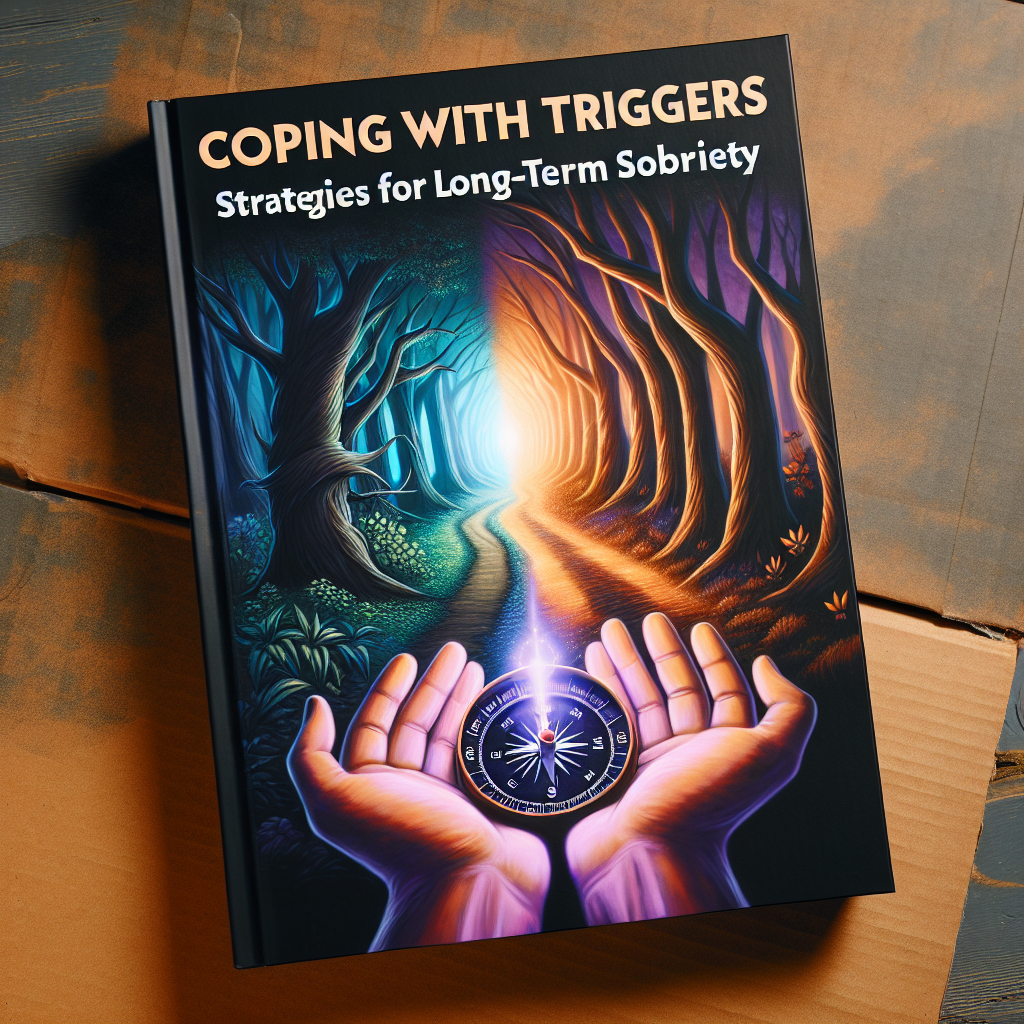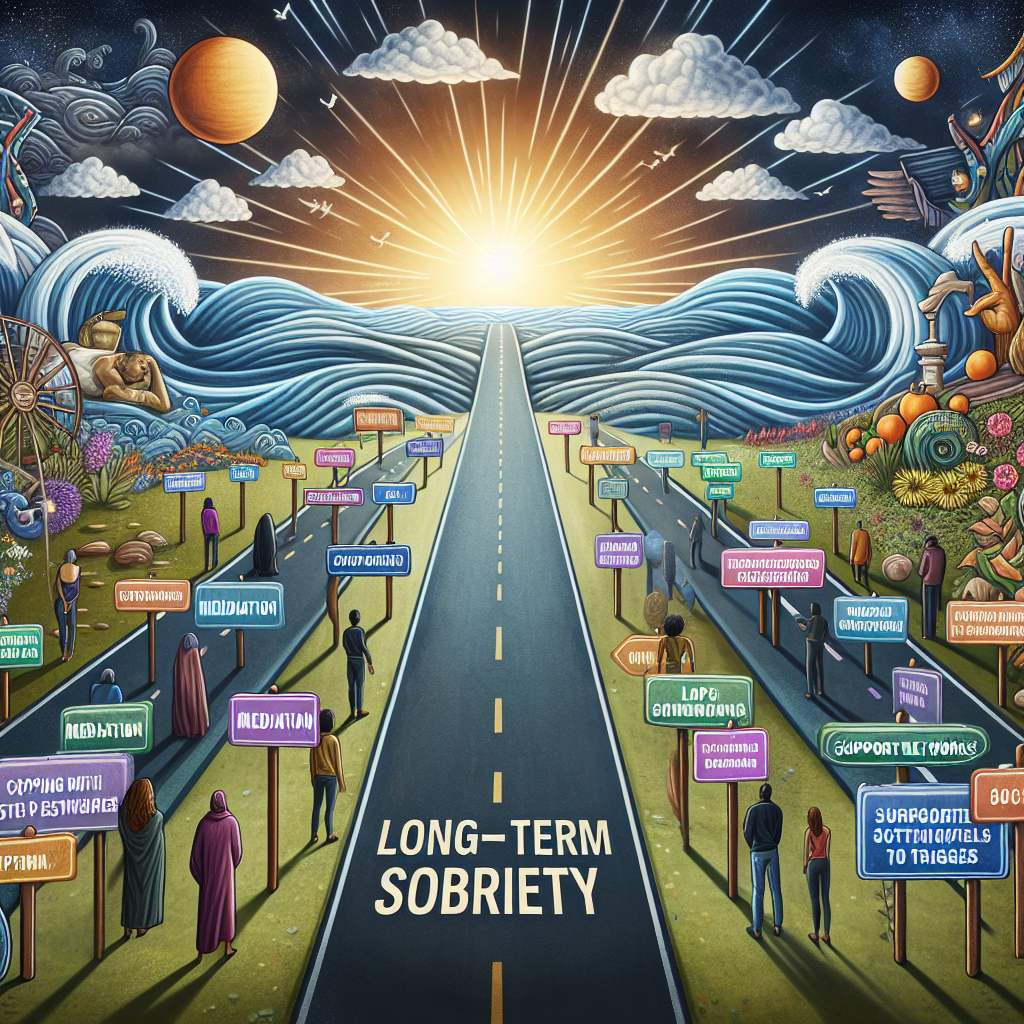-
Table of Contents

“Empower Your Journey: Mastering Triggers for Lasting Sobriety”
Introduction
Coping with triggers is a crucial aspect of maintaining long-term sobriety for individuals recovering from addiction. Triggers, which can be internal or external cues that elicit cravings or urges to use substances, pose significant challenges to sustained recovery. Effective strategies for managing these triggers are essential to prevent relapse and support ongoing sobriety. This introduction explores various techniques and approaches that individuals can employ to recognize, understand, and cope with triggers, thereby enhancing their resilience and commitment to a sober lifestyle. By developing personalized coping mechanisms and leveraging support systems, individuals can navigate the complexities of recovery and achieve lasting sobriety.
Identifying and Managing Emotional Triggers in Long-term Sobriety
In the journey of long-term sobriety, identifying and managing emotional triggers is crucial for maintaining a healthy and fulfilling life. Emotional triggers are those situations, people, or feelings that can provoke a strong urge to return to substance use. Recognizing these triggers early on and developing effective coping strategies can make a significant difference in sustaining sobriety. The first step in managing emotional triggers is to become acutely aware of what they are. This requires introspection and honesty with oneself. Common emotional triggers include stress, loneliness, anger, and even happiness. For instance, a stressful day at work might lead to thoughts of using substances as a way to unwind. Similarly, feelings of loneliness can create a void that one might be tempted to fill with alcohol or drugs. By identifying these triggers, individuals can prepare themselves to face them head-on.
Once emotional triggers are identified, the next step is to develop strategies to manage them. One effective approach is to create a support system. Surrounding oneself with understanding and supportive individuals can provide a buffer against the urge to relapse. This support system can include family, friends, or members of a support group who understand the challenges of long-term sobriety. Additionally, engaging in regular therapy or counseling can offer a safe space to explore and address emotional triggers. Therapists can provide valuable tools and techniques to cope with difficult emotions and situations.
Another powerful strategy is to practice mindfulness and stress-reduction techniques. Mindfulness involves staying present in the moment and observing one’s thoughts and feelings without judgment. Techniques such as deep breathing, meditation, and yoga can help calm the mind and reduce the intensity of emotional triggers. By incorporating these practices into daily routines, individuals can build resilience and better manage their emotional responses.
Furthermore, developing healthy habits and routines can play a significant role in managing emotional triggers. Regular exercise, a balanced diet, and adequate sleep are essential components of physical and mental well-being. Exercise, in particular, has been shown to release endorphins, which can improve mood and reduce stress. Establishing a daily routine that includes time for self-care and relaxation can create a sense of stability and predictability, making it easier to navigate emotional challenges.
In addition to these strategies, it is important to set realistic goals and celebrate small victories along the way. Long-term sobriety is a journey, and it is essential to acknowledge and appreciate the progress made. Setting achievable goals can provide a sense of purpose and motivation, while celebrating milestones can reinforce the commitment to sobriety. This positive reinforcement can help build confidence and resilience, making it easier to face and manage emotional triggers.
Lastly, it is crucial to remain vigilant and proactive in the face of emotional triggers. Sobriety is a lifelong commitment, and there will be times when triggers resurface unexpectedly. By staying connected to a support system, practicing mindfulness, maintaining healthy habits, and setting realistic goals, individuals can equip themselves with the tools needed to navigate these challenges. It is important to remember that it is okay to seek help when needed and that reaching out for support is a sign of strength, not weakness.
In conclusion, identifying and managing emotional triggers is a vital aspect of long-term sobriety. Through self-awareness, support systems, mindfulness practices, healthy routines, and realistic goal-setting, individuals can build resilience and maintain their commitment to a sober life. By embracing these strategies, one can navigate the complexities of emotional triggers and continue on the path to a healthier, more fulfilling future.
Building a Support System to Cope with Triggers in Long-term Sobriety
Building a support system is crucial for coping with triggers in long-term sobriety. As individuals navigate the complexities of maintaining sobriety, the presence of a reliable and understanding network can make a significant difference. This network can consist of family, friends, support groups, and professionals who provide encouragement, accountability, and a sense of belonging. By fostering these connections, individuals can better manage the inevitable challenges that arise on their journey to long-term sobriety.
One of the first steps in building a support system is identifying people who genuinely care about your well-being. These individuals should be trustworthy, empathetic, and non-judgmental. They should understand the importance of sobriety and be willing to offer their support without enabling any negative behaviors. Open communication is key; sharing your goals and struggles with these trusted individuals can help them understand how best to support you. This mutual understanding creates a foundation of trust and respect, which is essential for effective support.
In addition to personal relationships, joining support groups can be incredibly beneficial. Groups such as Alcoholics Anonymous (AA) or Narcotics Anonymous (NA) provide a safe space for individuals to share their experiences and learn from others who have faced similar challenges. These groups offer a sense of community and belonging, which can be particularly comforting during difficult times. The shared experiences and collective wisdom within these groups can provide valuable insights and coping strategies that might not be available through personal relationships alone.
Professional support is another critical component of a robust support system. Therapists, counselors, and addiction specialists can offer expert guidance and evidence-based strategies for managing triggers and maintaining sobriety. Regular sessions with a professional can help individuals develop coping mechanisms, address underlying issues, and stay focused on their recovery goals. Moreover, professionals can provide a level of objectivity and expertise that friends and family may not be able to offer.
While building a support system, it is also important to set boundaries and manage expectations. Not everyone will understand the complexities of addiction and recovery, and that’s okay. It’s essential to surround yourself with people who are supportive and to limit interactions with those who may trigger negative emotions or behaviors. Setting clear boundaries helps protect your sobriety and ensures that your support system remains a positive influence.
Furthermore, engaging in healthy activities and hobbies can also contribute to a strong support system. Activities such as exercise, meditation, and creative pursuits can provide a sense of purpose and fulfillment, reducing the likelihood of succumbing to triggers. These activities can also introduce you to new social circles and potential support networks, further strengthening your overall support system.
In conclusion, building a support system is a multifaceted process that involves personal relationships, support groups, professional guidance, and healthy activities. By fostering these connections and setting clear boundaries, individuals can create a robust network that helps them navigate the challenges of long-term sobriety. The journey to sobriety is not one that should be taken alone; with the right support system in place, individuals can find the strength and resilience needed to maintain their sobriety and lead fulfilling lives.
Q&A
1. **Question:** What is one effective strategy for coping with triggers in long-term sobriety?
**Answer:** One effective strategy is to develop a strong support network, including attending regular meetings with support groups like Alcoholics Anonymous (AA) or Narcotics Anonymous (NA), where individuals can share experiences and receive encouragement.
2. **Question:** How can mindfulness techniques help in managing triggers for someone in long-term sobriety?
**Answer:** Mindfulness techniques, such as meditation and deep-breathing exercises, can help individuals stay present and aware of their thoughts and feelings, allowing them to manage stress and reduce the impact of triggers by responding calmly rather than reacting impulsively.
Conclusion
Coping with triggers is essential for maintaining long-term sobriety, requiring a multifaceted approach that includes self-awareness, healthy coping mechanisms, and a strong support network. Strategies such as identifying and avoiding high-risk situations, practicing mindfulness and stress-reduction techniques, engaging in regular physical activity, and seeking professional help when necessary can significantly enhance one’s ability to manage triggers effectively. Building a robust support system through therapy, support groups, and sober communities also plays a crucial role in sustaining sobriety. Ultimately, a proactive and comprehensive strategy tailored to individual needs is key to successfully navigating triggers and achieving long-term recovery.



